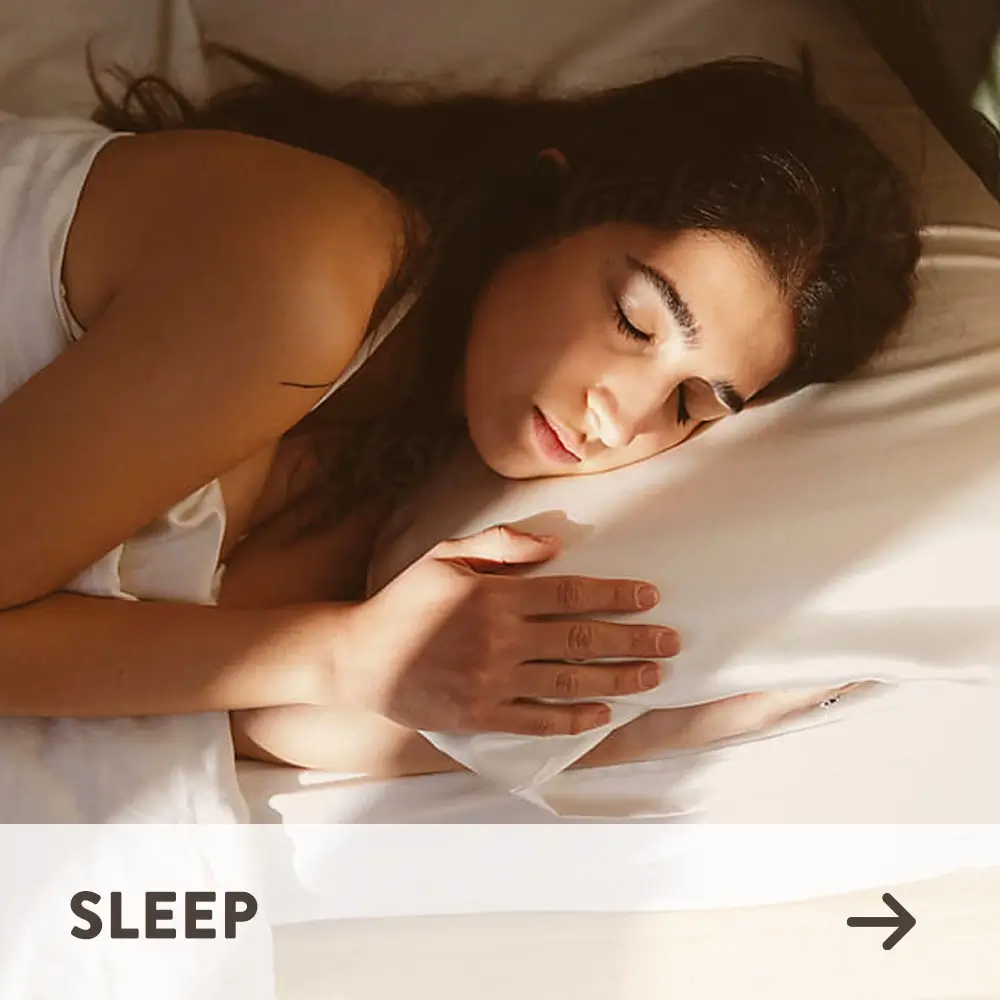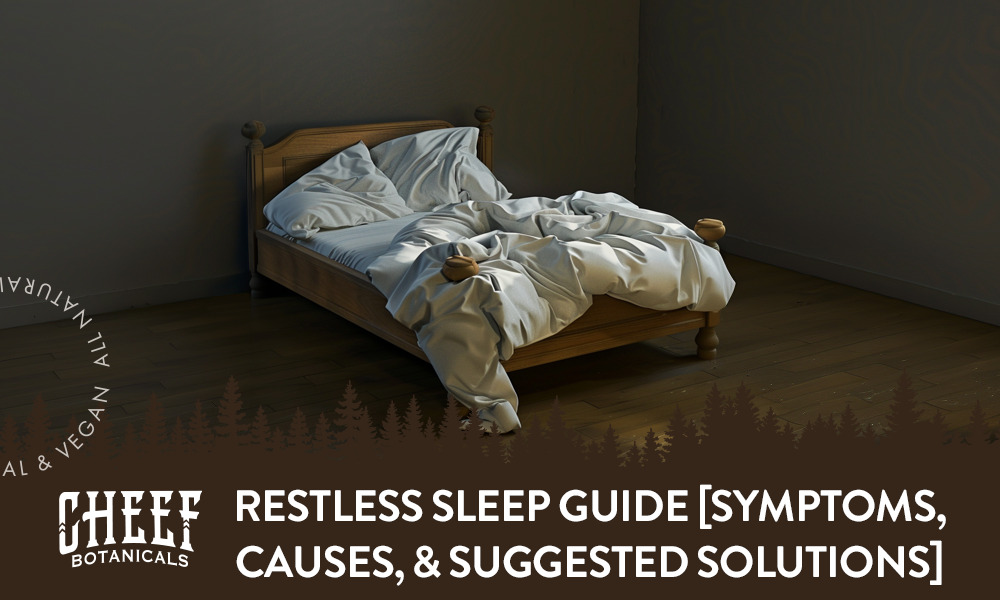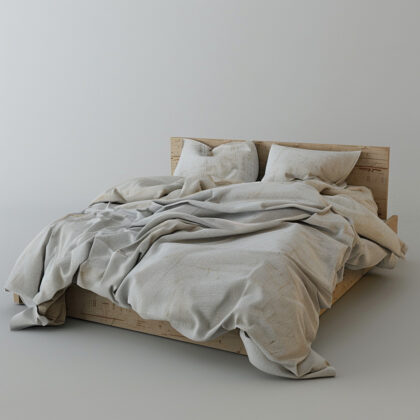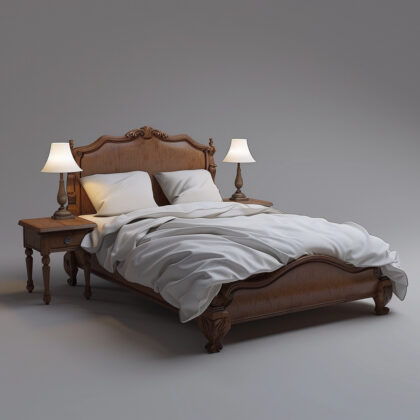Do you toss and turn all night? You might be experiencing restless sleep. Many people face this issue, which affects sleep quality and makes you tired during the day. Poor sleep can cause a variety of health problems and impact your overall well-being.
Sleep is essential for maintaining overall health. Quality sleep helps your body repair itself, supports mental health, and boosts your immune system.
In this guide, we will explore the common symptoms of restless sleep and its causes and suggest practical solutions to improve sleep quality. Find out if it’s a sleep disorder and learn about sleep hygiene to create a comfortable sleep environment. Read on and see how to transform your bedtime struggles into a serene sleep experience!
What Is Restless Sleep?
Do you have a hard time falling asleep and staying asleep, or do you wake up feeling unrefreshed? These are signs of restless sleep, which can also include tossing and turning throughout the night, waking up frequently, or lying awake for long periods. Restless sleep affects sleep quality and can lead to daytime sleepiness, poor sleep hygiene, and fatigue.
Many factors cause restless sleep. Stress, anxiety, uncomfortable sleep environments, and other factors can make it hard to get a good night’s rest. Sleep disorders, including restless legs syndrome, insomnia, and sleep apnea, also contribute to sleep issues.
Our sleep patterns and sleep schedule matter too. Poor sleep hygiene, like using electronic devices before bed, can disrupt our sleep-wake cycle and make falling asleep difficult.
Understanding restless sleep helps us find ways to improve our sleep quality. By recognizing the causes and making small changes, you can get better sleep and wake up feeling refreshed.
Common Symptoms
Restless sleep can affect your life in many ways. Recognizing these can help you understand your sleep issues better. Here are common symptoms you should be aware of:
Difficulty Falling Asleep and Frequently Waking
Having a hard time falling asleep and waking up frequently at night are common signs of restless sleep. You might lie awake for a long time before falling asleep or wake up multiple times throughout the night. This disrupts your sleep quality and leaves you feeling tired and unrefreshed.
Tossing and Turning or Night Sweats
Tossing and turning or experiencing night sweats are also symptoms of restless sleep. Constant movement can disrupt your sleep patterns and prevent you from entering deep sleep. Night sweats can make you feel uncomfortable and wake you up multiple times.
Daytime Fatigue and Difficulty Concentrating
Daytime fatigue and difficulty concentrating are major signs of restless sleep. When you don’t get enough restful sleep, your body doesn’t recharge properly, leaving you feeling tired and sluggish during the day.
Focusing on tasks, whether at school, work, or home, can become challenging. Trouble concentrating and daytime sleepiness often come from poor sleep quality. Following a regular sleep schedule can help lessen these issues.
Irritability Throughout The Day
Restless sleep often leads to irritable feelings throughout the day. When you don’t get enough sleep, you easily feel upset or annoyed. This can affect your relationships with family, friends, and coworkers. Poor sleep quality affects your mood and makes handling stress more difficult.
Feeling Unrefreshed
Feeling unrefreshed after a full night’s sleep is another symptom of restless sleep. You might sleep for the recommended hours but still wake up groggy and tired. This happens because restless sleep prevents your body from getting enough deep sleep, which is essential for feeling refreshed. Addressing issues like an uncomfortable sleep environment or stress may help improve your sleep quality.
Physical Symptoms
Restless sleep can also cause a variety of physical symptoms. You might wake up feeling tired and experience daytime sleepiness. Difficulty staying asleep can lead to feeling groggy and having trouble concentrating.
Depending on what you’re doing, not being alert can be dangerous, like if you’re driving or operating heavy machinery. Poor sleep quality can also cause frequent headaches and muscle tension.
Restless Legs Syndrome
Restless legs syndrome often causes sleep disturbances throughout the night. This condition gives you an uncontrollable urge to move your legs, especially when you’re trying to relax or fall asleep. It can cause tossing and turning, making it hard to get restful sleep. People with restless legs syndrome often wake up feeling tired and unrefreshed.
Common Causes
Restless sleep can have many causes that disrupt your sleep quality. Understanding these can help you address and improve your sleep issues. Here are some common causes of restless sleep:
- Stress and Anxiety. These issues can keep your mind active at night, making it tough to fall asleep or stay asleep.
- Poor Sleep Environment. Tossing and turning can result from an uncomfortable sleep environment, such as a noisy surrounding, bright lights, or an uncomfortable bed.
- Caffeine and Stimulants. Consuming caffeine, energy drinks, and other stimulants before bedtime can make it hard to fall asleep.
- Inconsistent Sleep Schedule. Irregular bedtimes and wake-up times can disrupt your sleep patterns and your sleep-wake cycle.
- Diet and Eating Habits. Eating large meals or spicy foods before bed can cause discomfort and disturbed sleep.
- Medical Conditions. Sleep apnea, restless legs syndrome, and chronic insomnia can significantly impact your sleep quality.
- Medications. Certain medications can interfere with sleep, causing trouble falling or staying asleep.
- Alcohol and Tobacco. While drinking alcohol can help you fall asleep, it can disrupt your sleep patterns as the night goes on. Tobacco is a stimulant that can keep you awake.
- Hormonal Changes. Changes in hormone levels, especially in women, can cause sleep disturbances.
- Lack of Physical Activity. Getting enough exercise can make it easier to fall asleep and achieve restful sleep.
- Technology and Screen Use. Phone or computer usage is not advisable before bedtime. It can disrupt your sleep hormone, making it harder to fall asleep.
- Mental Health Disorders. Mental health disorders like depression can lead to sleep problems and reduce sleep quality.
Restless Sleep – Suggested Solutions
Restless sleep can get better with some simple changes. You can improve your sleep quality by tweaking your habits and setting up a good sleep environment. Here are some simple suggestions to help you get a good night’s rest.
Establish a Regular Sleep Routine
Setting a regular sleep routine helps regulate your sleep-wake cycle. Go to bed and wake up at the same time every day to improve your sleep patterns. A consistent schedule can reduce sleep disturbances and help you fall asleep faster. Create a relaxing bedtime routine, like reading or meditating, to let your body know it’s time to sleep.
Limit Screen Time Before Bed
Limiting screen use before bed can enhance your sleep quality. Electronic devices like phones, tablets, and TVs emit blue light, disrupting your sleep-wake cycle. This makes it harder to fall asleep and stay asleep.
Avoid using a phone at least an hour before bedtime to help your body relax. Instead, enjoy relaxing activities like reading or meditating to promote a restful sleep environment.
Try Hemp Options for Sleep
Hemp products like those we offer may help you sleep better. Here are some of our top hemp options to promote and support sleep:
- CBD + CBN Gummies for Sleep. These gummies contain high-quality natural ingredients with no additives. Enjoy delicious fruit flavors while promoting a peaceful slumber.
- D9-THC + CBN Gummies for Sleep. Combining Delta 9 THC and CBN, these gummies offer full-body calm and are mildly sedative. Enjoy assorted natural fruit flavors and wake up feeling refreshed and energized.
Sleep Environment and Hygiene
Creating a good sleep environment and practicing proper sleep hygiene are essential for quality sleep. Keep your bedroom dark, quiet, and cool to encourage restful sleep. Choose comfortable bedding and a supportive mattress to minimize tossing and turning. Keep your sleep environment free of distractions, like electronic devices, to help you stay asleep.
Try Calming and Relaxing Blue Lotus Options
Our Blue Lotus CBD gummies promote relaxation and improve sleep quality. These gummies capture the essence of the sacred Blue Lotus flower, known for its calming properties. Each gummy is packed with 300mg of pure Blue Lotus Extract, helping soothe stress and promote peaceful sleep.
Enjoy the vibrant and delicious flavors as you wind down before bed. Adding Blue Lotus gummies to your bedtime routine may lead to more restful and relaxing sleep.
Avoid Stimulants Later in the Day
Avoiding stimulants later in the day helps improve your sleep quality. Caffeine in coffee, tea, or energy drinks can keep you alert and make it hard to fall asleep. Try to avoid these after the early afternoon.
Instead, choose calming herbal teas like blue lotus, chamomile, or peppermint in the evening. Cutting back on stimulants can help you fall asleep faster and enjoy more restful sleep.
Cognitive Behavioral Therapy
Cognitive Behavioral Therapy (CBT) helps improve sleep quality by changing negative thoughts and behaviors. CBT may reduce anxiety and stress, making it easier to fall asleep and stay asleep. It might also work well for sleep disorders like chronic insomnia and sleep apnea.
By focusing on healthy sleep habits and a positive sleep environment, CBT may lead to better sleep. Talk to a therapist to see if CBT is right for you.
Medications or Supplements
Some medications or supplements can affect your sleep quality. Certain prescriptions can cause sleep disturbances or trouble falling asleep. If your medication impacts your sleep, talk to your doctor about other options.
Supplements like melatonin or magnesium can help you fall asleep and improve sleep quality. Check with a healthcare professional before beginning new supplements to confirm they are safe.
Are There Tests to Diagnose the Cause of Restless Sleep?
Yes, there are tests to diagnose the cause of restless sleep. If you often experience restless sleep, it’s important to discover why.
A doctor might recommend a sleep study, also called polysomnography. This test tracks your brain waves, heart rate, breathing, and movements while you sleep. It can help diagnose sleep disorders like sleep apnea and restless legs syndrome.
You might also keep a sleep journal to track your sleep patterns and sleep duration. Blood tests can check for medical conditions or deficiencies that affect sleep quality.
Your doctor may also examine your medical history and any mental health issues. These tests can help identify what’s causing your poor sleep and lead to better sleep quality.
When to See a Healthcare Provider
You should see a healthcare provider if restless sleep affects your daily life. If you can’t fall asleep, stay asleep, or wake up feeling tired despite enough sleep, it’s probably time to seek help. Persistent restless sleep can impact your mental health, mood, and overall health.
If you experience daytime sleepiness, trouble concentrating, or irritability, a healthcare provider could find the cause. They suggest tests to diagnose sleep disorders like sleep apnea or restless legs syndrome. If poor sleep quality affects your work, school, or relationships, professional advice can improve your sleep hygiene and sleep quality.
If you rely on over-the-counter sleep aids regularly, you may want to talk to your doctor. They can recommend safer, long-term solutions for better sleep. Pay attention to persistent sleep problems. Getting the right help can greatly improve your overall well-being.
Final Thoughts – Restless Sleep
With everything we discussed, restless sleep can affect your physical and mental health. It’s important to address the causes of poor sleep and find solutions that work for you.
Enhancing sleep hygiene, maintaining a consistent sleep schedule, and ensuring a comfortable sleep environment can all help. Limiting screen time, avoiding stimulants later in the day, and trying hemp options like our CBD gummies can all help.
This guide has covered symptoms, causes, and solutions for restless sleep. Make sleep a priority and work on improving your sleep patterns. If restless sleep continues, see a healthcare provider to evaluate sleep disorders like sleep apnea, restless legs syndrome, or possible sleep-related breathing disorders.
Quality sleep is essential for overall health. It helps you feel refreshed and ready for the day. Better sleep leads to better living!





























